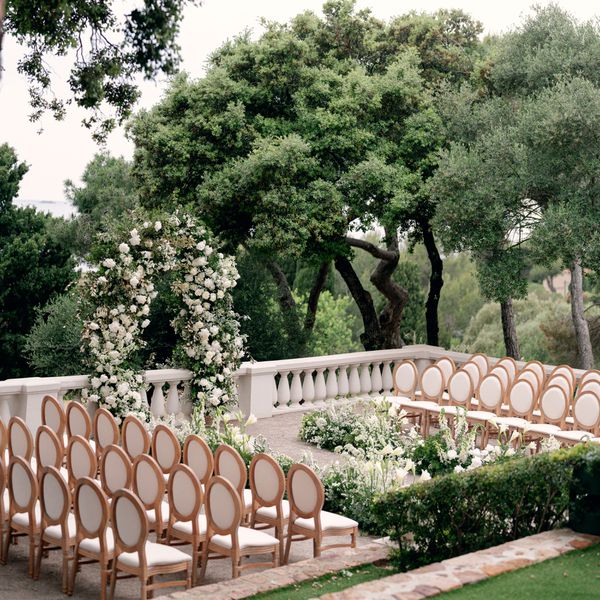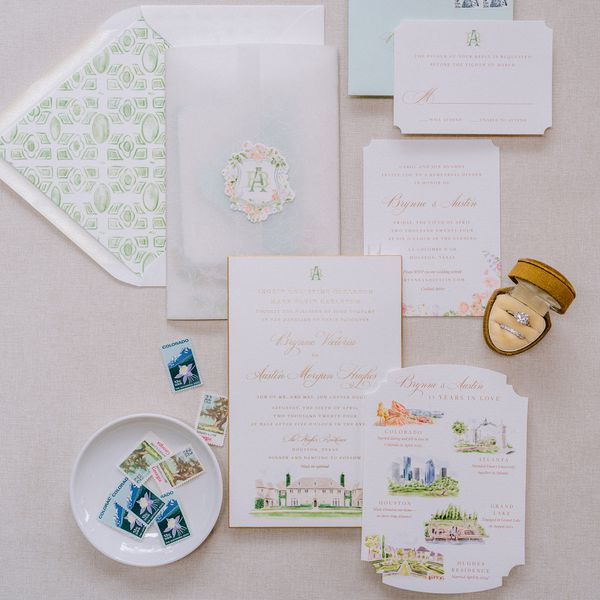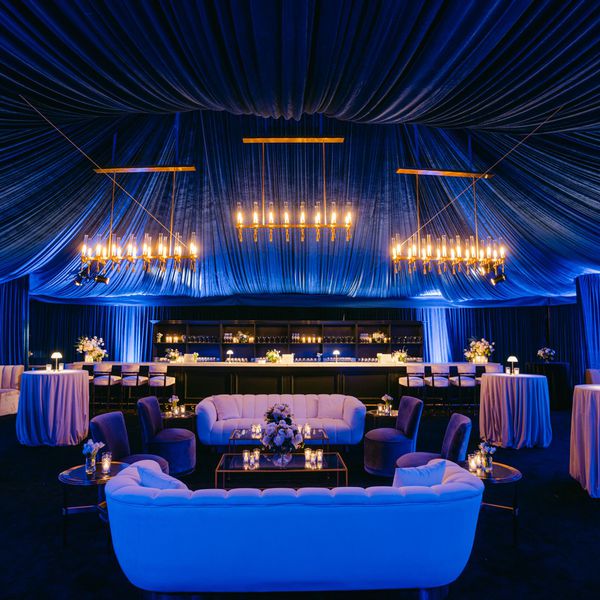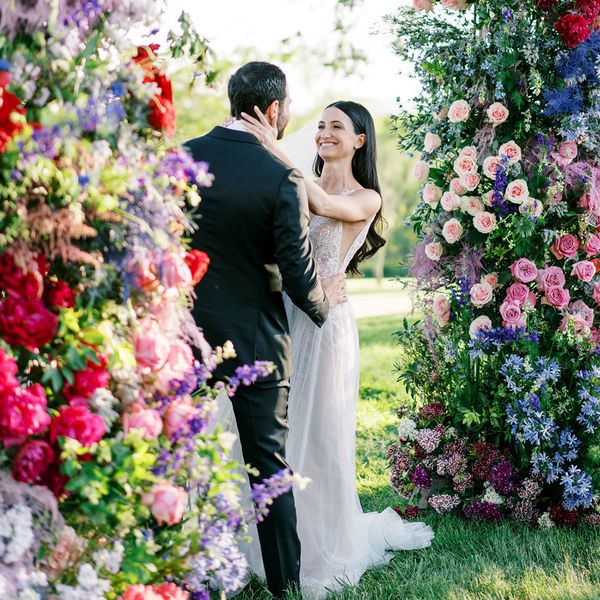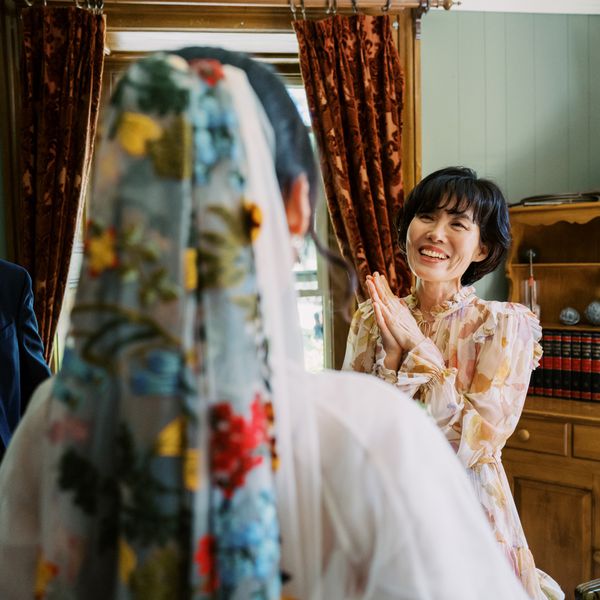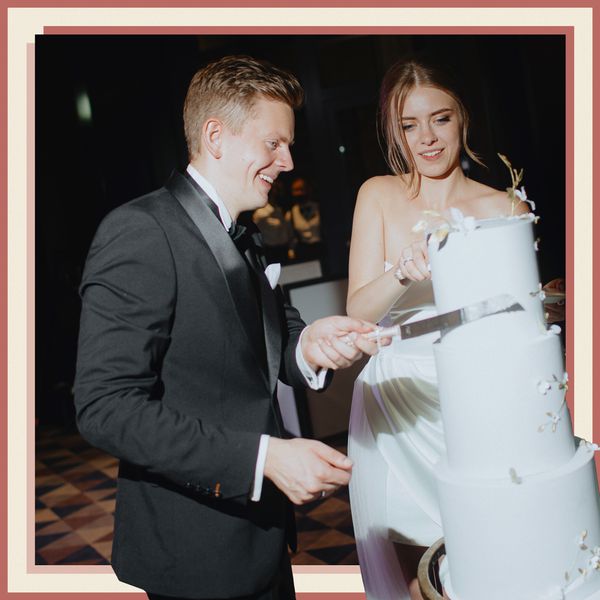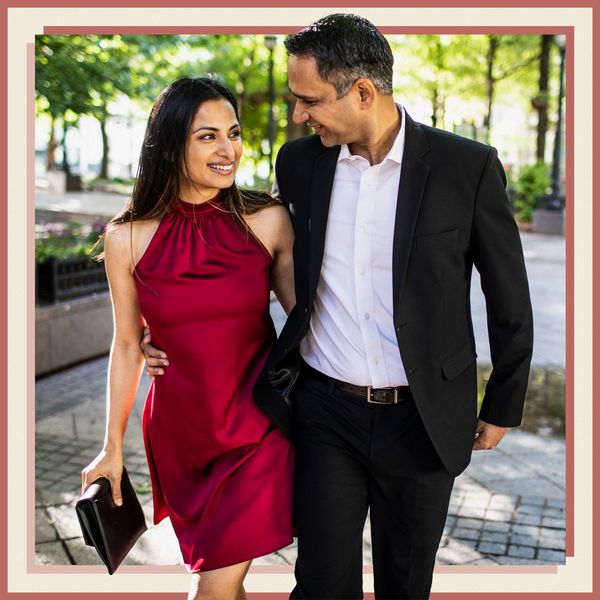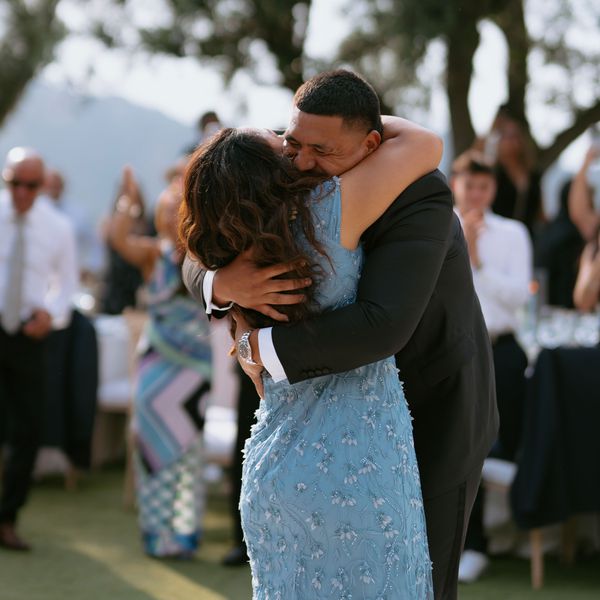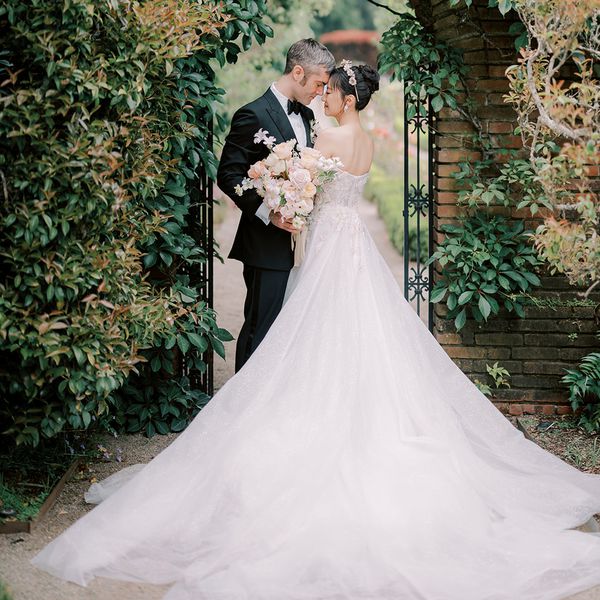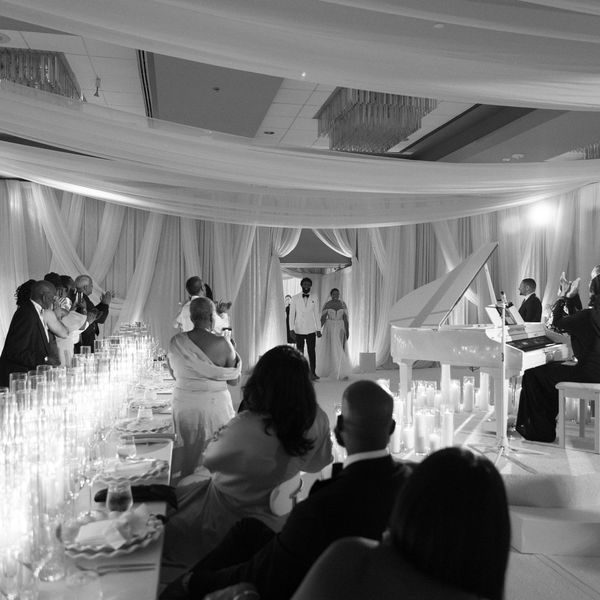:max_bytes(150000):strip_icc()/Wedding-Planning-Indecisive-Getty-Images-Main-958efa02091d4d5a8c95c08e50c5e82a.jpg)
Getty Images
The sheer number of decisions that go into planning a wedding can give even the most clear-eyed couples a serious case of decision fatigue. Between selecting a color scheme and choosing which cousins belong in which family photo, hosting the celebration of your dreams can seem like a never-ending feedback loop of "yeses" and "nos."
In fact, the process can feel overwhelming right from the start and leave you dreading the entire planning period—especially if you have trouble making decisions (or don’t have immediate, strong feelings about your wedding details). Sounds like a situation you're currently in? Don't worry, you're not alone, as many individuals struggle with all of the above when planning their special days.
Ahead, four experienced wedding planners share their best advice for focusing on your vision and powering through decision fatigue and analysis paralysis. Continue on for the top 10 tips for planning a wedding if you have an indecisive personality.
Meet the Expert
- Chanda Daniels is the founder and creative director of Chanda Daniels Planning + Design.
- Ainsley Blattel is a non-binary, queer wedding planner who works at Modern Rebel.
- Jason Mitchell Kahn is the owner and creative director at Jason Mitchell Kahn & Co. in New York City.
- Susan Norcross is the owner and wedding director of Philadelphia's The Styled Bride.
Establish Your Priorities
Before you jump into the decision-making process, you and your partner should take some time to agree on the wedding elements that are the most important to each of you—beyond "what you see on Instagram or Pinterest,” advises event planner Chanda Daniels. This doesn’t mean you’re planning out napkin folds and cocktail hour playlists; instead, you should list and agree on elements that are non-negotiables. Do you want a four-star meal, a live band, or a destination that’s convenient for your out-of-town relatives? Choose a few must-haves to jumpstart your planning. “Get clear from the very start on what matters to you and your partner—individually and collectively —so you spend time on what's actually important to you and making quick decisions about things you don't really care about,” says Ainsley Blattel of Modern Rebel.
Define Your Vision
Once you have the basic parameters in place, start envisioning the broader details: Are you picturing a seated dinner, an outdoor ceremony, or an after-party? “Weddings do evolve throughout the planning process, but nailing down some key points and sticking to them is best,” says event planner Jason Mitchell Kahn. “It’s very easy to feel influenced when you start seeing a million things online, so think from the beginning about the level of formality, what is seasonal, and everything you both like and dislike from previous weddings you have attended.”
While these decisions don’t have to be set in stone, they can help you narrow the field of potential options as you move through the process. “What’s going to make or break the day for you?” asks Susan Norcross of The Styled Bride. “You get one shot, so, in a perfect scenario, what does that look like?”
Plan (and Stick to) Your Budget
Whether it's $2,500, $25,000, or $250,000, nearly every couple works within a budget when planning their wedding—and for indecisive couples, that framework can provide much-needed help. “Guidelines like cost make planning easier because you have clear parameters that you're working within,” says Blattel. By matching your priorities with your finances, you can make many decisions easier (and cut some entirely). “If you don't care about napkins, don't spend a ton of money on them,” Blattel adds. “Put that money into something you truly care about.”
After setting a budget—and blocking out payments for the venue, food and beverage, photographer, florist, and other major expenses—indecisive couples will then have a better idea of what they can say "yes" and "no" to. “It’s during the homestretch when clients are reviewing items such as cocktail napkins and ceremony programs, they tend to be the most indecisive,” says Kahn. “If you enter that stage of the process understanding what you can actually still spend, it will help eliminate some of the guesswork.”
Set a Realistic Planning Timeline
Creating a schedule for your decision-making process can also prevent you from feeling overwhelmed. “Break down the planning process into manageable tasks with deadlines,” says Daniels. “You have to have time to plan your wedding—make it a priority and show up.”
For Blattel and their team, 12 to 18 months typically provides just the right amount of time for wedding planning. “This gives couples enough time to think through decisions that need careful consideration without getting lost in it, and also carve out time to do things together that don't involve wedding planning,” says Blattel. “Planning a wedding in less than 12 months is totally doable, but having a shorter time frame can mean you're making decisions about multiple things at once, which can become overwhelming. Unlike a college essay, a looming deadline isn't the way to kickstart you into marking things off your planning checklist. Give yourself the gift of time to plan a party you're really excited to be at without losing sight of all else along the way.”
Limit Your Research
When you’re planning a wedding, over-researching is an easy way to stall your decision process. “Being thorough is one thing, being exhaustive is another,” says Kahn. “If you look at too many options for anything, it’s easy for them to start blurring together and make you feel like nothing is standing out.”
Ask friends and family members for their recommendations, find out which experts your venue and planner recommend, and make a short list of potential hires. Blattel also recommends limiting your interviews to no more than six vendors in each category. “There are so many vendors out there, but studies show that limiting your options to six helps avoid decision overwhelm,” they say. “Talk to six vendors, make a decision, and move on.”
Delegate Decisions and Tasks
Neither partner should feel like the entire burden of wedding decision-making falls on them. “The best way to make sure both partners feel heard and included in the wedding planning process is to delegate tasks based on each person's priorities and skillset, and then schedule one night a week for a planning check-in,” says Blattel. “That way, even if the person who really cares about food has a hard time making decisions, they can find a few good options for both partners to decide on together. Just because one person is more decisive doesn't mean they get to make all the decisions. You're planning a celebration of your partnership, after all! So plan it together.”
You’re also at liberty to delegate the decisions neither of you feel strongly about to your planner, your parents, or another enthusiastic friend or family member. All you need to do is participate in a few parts of the process—like interviewing the band, joining the catering tasting, and finding a dream dress—and leave the rest to someone else.
Trust Your Instincts
While most couples haven’t planned a wedding before facing their own, everyone makes decisions every day. When you feel overwhelmed, fall back on your own taste for guidance. “A lot of people, when they think what a wedding looks like, they instantly go to what their friend did, or what their parents did, or what they’ve seen on Instagram—and that may not necessarily be ‘them’,” says Norcross. “That’s where people get lost: They get really caught up in what everybody else is doing and they don’t really trust themselves. That’s where people get into trouble because they’re not really doing anything that feels authentic or real or comfortable, so it becomes an uncomfortable process the entire time because of that.”
Make Planning Personal
The authentic touches—the ones that really speak to you—will be the easiest decisions to make. “I always ask, what’s your happy place? What is the thing here, that when you look at it, you smile, it feels comfortable to you, it feels like you and your fiance?” says Norcross. One example: You may not be able to make a list of flowers you like, says Norcross, but maybe you remember the hydrangeas in your grandmother’s yard, the tulips your fiancé sent after your first date, or your annual visit to the orchid display at your local botanical garden. “Once you get down to what’s personal, you can get a lot more easy answers,” notes Norcross.
Be Aware of What You Don't Like
When you really can’t decide on what you do like, flip the question. “People can very quickly tell me what they don’t like, which is just as important," says Norcross. More specifically, if you feel washed out in pastels, avoid large-group settings, think roses are cliché, or sit out group dances, then you’ve already started to make decisions about what you might have at your wedding (jewel tones; a small guest list; calla lilies; a jazz trio). “If someone says they hate to sit still, but they love to dance, they like to get up and move, then on the day of your wedding, why do you want to be sitting for a two-hour dinner?” says Norcross.
Hire a Wedding Planner
Even couples who don’t think of themselves as indecisive benefit from working with a planner, who can help define the vision, manage the budget, and select vendors who are a good fit. “Our job is to not only guide couples through the planning process, but to provide them with custom vendor recommendations based on their budget, vision, and vibe,” says Blattel. “It's a lot less work—and a lot more exciting!—to make decisions from a smaller pool of vendors given to you by a trusted source (your planner) that you already know would be a great fit.”
A planner can also help you answer a critical question about your indecision: Are you having trouble deciding on your wedding details because you like everything you see, or because you don’t? If current wedding trends aren’t your style, then a planner can help you envision alternatives to what all your friends are doing. “People get so caught up in what the expectations are,” Norcross shares. “[Think about] what is your story, what do you like, what’s authentic to you—because if we build a whole day that’s not about you, then what was the point?”
